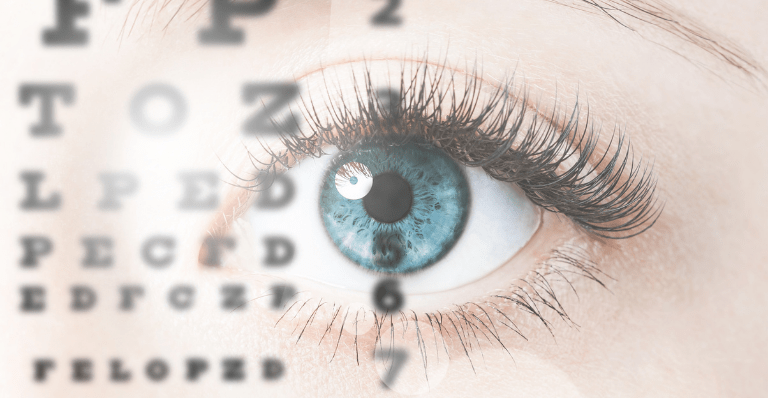Keep your Eyes Safe and Healthy

Contact lenses are the most convenient alternative to glasses. People that don’t like to wear glasses, or feel glasses can interrupt them while sporting; a pair of contact lens will be the best option. Nevertheless, lens wearers are at risk of getting an eye infection and hence irritation and discomfort. So, it is crucial to know the right symptoms, causes, and precautions.
Keep your Eyes Safe and Healthy: Avoid Discomfort and Irritation
Eye lenses are used by many as an alternative choice for eyeglasses. Most people that are having an active lifestyle or those who don’t like to carry glasses use eye optical contact lens as an alternative choice for glass frames. However, lenses do carry a certain risk of eye infections. So, it is vitally important to understand the symptoms, causes, and Precautions to take care of your eyes in the right way.
Also read: Facts About Glioblastoma Multiforme
Symptoms
Have you noticed swollen, sore, or red eyes after wearing your lenses? If yes, probably you are suffering from eye infection subjected to contact lens. Other causes of eye irritation and discomfort are blurred vision, dryness in eyes, and feeling like there is something stuck in your eye.
Symptoms of Eye Infection
Depending on the causes the symptoms can vary. What you feel usually depends on the area of your eye which is infected and not the cause.
Symptoms of Conjunctivitis:
-
- Redness, irritation, and itchiness
- Discharge – if viral conjunctivitis, you will usually experience watery or mucous-like discharge; and if bacterial conjunctivitis, you will face thick discharge which can be white, green, or yellow in color.
- Feeling like having sand in eyes
- Crusty eyelids
Symptoms of Keratitis and other frontal infections:
-
- Pain, itchiness, or sensation of having dirt or some particles in the eye
- Sensitivity to light
Redness or thin red lines in the white portion of your eye - Crusty yellow discharge while waking up
- Watery eyes
- Swollen eyelids
- Constant blinking
Some infections many times cause no pain. They infect the retina, blood vessels, or optic nerve. And, the key symptom is week vision. These infections are stoppable but cannot be resolved permanently. So, it is vitally important to visit your eye doctor regularly and get your eyes checked.
Another possible symptom of eye damage is floaters. They are the tiny fragments in the liquid present in the internal part of your eyes. Have you experienced tiny bubbles – transparent or dart spotted – falling slowly through your vision line? Try with your best concentration. Everyone has them. But, it is dangerous if you suddenly experience an increase in them. Contact emergency eye care right away if you experience any one or more of these symptoms.
Also read: How to Keep your Teeth Dazzling White?
Types of Eye Infections
Health conditions like Lyme disease, shingles, tuberculosis; certain other issues like genital herpes, gonorrhea, and any social disease can also cause eye infections. Here are the common types of eye infections.
- Conjunctivitis – This is a common type of infection which is normally spread through children to children in schools, playgrounds, or daycare centers. The symptoms of this highly transmissible infection are a thin and moist crust that appears in the internal portion of your eyelids and outside the eye. This infection moreover includes redness and swelling. You may also feel goopy discharge.
- Stye – This infects the inside portion of your eyelids. A painful red bump appears usually at the base of eyelashes. It usually disappears on its own but if not, it is advisable to consult your eye doctor.
- Keratitis – It results in inflames cornea which is the front part of our eye. The cause of this infection is bacteria, parasites in water, or viruses. Keratitis most commonly affects contact lens wearers.
- Histoplasmosis – This infection occurs if you inhale airborne spores that contain fungus Histoplasma. Usually, it is mild; many people have it but they don’t know. It can lead to vision loss if not treated at the right time.
Preventative Remedies of Eye Infections
The most important preventative remedy to protect your eyes from getting infected is washing your hands thoroughly. Other steps you should take include:
- Wash the bedding, towels, blankets, etc. if you or anyone in your family has pinkeye. Moreover, don’t let anyone else use the same linens, towels, blankets, etc. since sharing these things can spread the infection from one person to another.
- Wash your hands before touching your face or eyes. If anyone in your family or any of your friends is having eye-infection, wash your hands after coming into contact with them.
- Be extra careful if you wear contact lenses. Follow the steps and procedures prescribed by your eye doctor for correctly suitable care of your lenses.
- Carry sunglasses while going out under the sun. This will protect your eyes from dirt and debris.
- See your eye doctor as early as you notice any issue in your eyes. And also, avoid sharing your personal things with your friends or family.
Fortunately, most common infections are cured on their own. No medical treatment or antibacterial drops are required. But, if symptoms stay longer for say more than 7 days or intensify suddenly rather than reducing the discomfort, this could be a severe infection. Immediately visit professional eye care and get your eye checked. Follow these simple tips and avoid eye-related problems. Right care and precautions are a must when it comes to the eyes.
Also read: Flu Shot Benefits and Disadvantages
Possible Causes
Improper care
Soft contact lenses are delicate and need to have cared as recommended by the eye doctor. Moreover, your negligence in cleaning them properly, cleaning hands properly before putting them in your eyes and taking out back, using recommended solutions so they don’t dry out, etc. can indeed result in eye discomfort and irritation. In addition to this, letting your lenses come into contact with perfumes, make-up and hair products, etc. can also harm your eyes. Caution! Never ever share them with anyone since this is the easiest way to spread infectious bacteria.
Extended Wearing
There are various brands and types of eye lenses; from hard to soft, and from brands that can be worn for a few recommendable hours, to the brands, you can safely wear for more than 24 hours. Keeping them into your eyes for more than the recommended hours can be a good reason for infection. Wearing them post their expiration date can also cause infectious and bacterial issues. Always destroy the old lenses and get new ones at the right time recommended by the eye examiner or the manufacturer.
Precautions
You can put your eyes at risk if not following the basic tips.
Sponge Down Your Hands Properly before Wearing Lenses
Wash your hands properly before touching your lenses; whether for wearing or putting them out. This will prevent germs and dirt from influencing your eyes. Only use chemical-free and mild soaps to wash your hand since chemical soaps can be strong enough to cause irritations.
Clean Lenses Properly while Removing
Again, wash your hands properly as you will be touching your eye optical contact lens to put them off. Remove them carefully and very tenderly rub them with the help of your fingers rinsing them with the prescribed solution. This will remove dirt and bacterial impurities deposited on the surface. Never use water or any other material to do this.
Replace your Lenses before it is Late
Reach out to your regular eye clinic to replace your lenses as early as the prescribed expiration date is finished. Don’t continually wear them unless you don’t experience any issue. Scheduled replacing will prevent complications.
Maintain your Lens Case Hygiene
Put your lenses correctly in a good lens case. It should be cleaned after every use. Humidity also spoils them. So never leave your lens case in a humid place. Store your lenses in their particular sides; i.e. right eye lens should be kept separate from the left eye lens. So, make sure that the lens case you are using or buying has symbols to identify the right and the left side. And finally, replace the case every three to four months.
Wrapping up
Out of numerous things, the above listed are a few things that can help you prevent discomfort and irritation due to contact lenses. Caring for them in the right way and using them correctly as prescribed will surely help you avoid various eye related issues. Changing them at the recommended schedule and getting an updated prescription from a reputable eye care services center can also keep you far away for lens irritations. If you are looking contact lenses, check contactlenses.co.uk.






